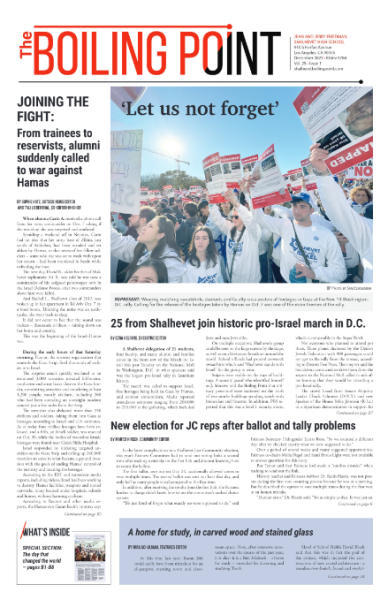OPINION: Beginning of the end for AP courses is a cause to celebrate
June 11, 2014
We’re not going to sugar coat it: AP classes suck. They’re extra stressful, extra time consuming, and leave little to no room for exploration or time for appreciation—which is why we fully support the school’s decision to phase out offering them.
That’s not to say all AP classes are awful or unenjoyable – it just means having to stick to a rigid curriculum that focuses more on breadth than depth. It means that sometimes our questions go unanswered simply because “it’s not going to be on the test.”
It also means added stress when picking classes for junior and senior year, making sure to fill your (often self-imposed) AP quota. All of us have heard students complain something along the lines of: “I need to take three APs senior year but I already took Psych and I’m not good at math or science so Calc and Chem are out…should I take Stat? I seriously need three APs or I’m not getting into college!!!” APs take away from a student’s ability to take classes they’re truly interested in in favor of a workload that might impress colleges.
Abolishing APs is a natural step for Shalhevet to take. Our school’s philosophy explicitly opposes the idea of learning just for the test. Here, it’s about the process (as Reb Noam would say, and so often does). Our teachers know how to teach more than what the AP curriculum requires, and the school is finally planning to take advantage of that.
Without APs, students will have the opportunity to take classes tailored to their real interests and needs—like Ms. Sunshine’s new course “Tipping Point,” which focuses on the 16th and 17th centuries of European history and replaces AP Euro. Science and math classes will have the same rigor but without the pressure or time crunch that an AP requires—Dr. Noel’s new Advanced Biology class will cover most of what AP Bio does, but with more depth and less rush.
If you’re worried that not taking APs will hurt your chances of admission to prestigious colleges or take away Shalhevet’s competitive edge, it looks like you are wrong. The two college admission officers who spoke at our school on May 1 (see story, page 1) said universities will recognize the fact that APs aren’t offered to students because our community thinks there are more valuable, and equally challenging, approaches to education—something that colleges will appreciate, not condemn us for doing. And regardless, colleges judge each student within the context of his or her own school, so if an AP isn’t offered, they won’t compare you to that public school student who is taking eight AP classes.
Though we’ll have to deal with them for a couple more years, it’s time to accept and appreciate the fact that APs are on their way out. We’re making way for something much sweeter.












